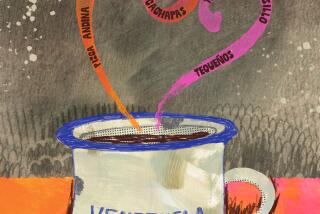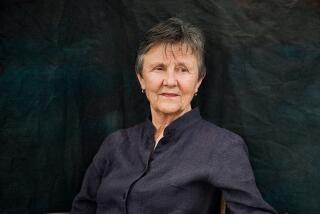The languages of the muse
In her introduction to this collection of autobiographical essays by writers, most of whom first spoke a language other than English, editor Wendy Lesser cites Joseph Conrad as a prototype for those who come to write in a language different from their mother tongues.
Conrad’s feelings were certainly unequivocal: “I have a strange and overpowering feeling that it [writing in English] had always been an inherent part of myself.... [I]f I had not written in English I would not have written at all.” It wasn’t a matter of choice or adoption, he claimed, except that “well, yes, there was adoption; but it was I who was adopted by the genius of the language.”
“Genius” here refers not to exceptional talent or mental abilities but, as Lesser notes, to “the indwelling spirit” of language: something inborn, native, innate in the language itself. Languages contain and preserve elements of the cultures that engendered them. For Conrad, it was English, rather than his native Polish, that felt like “an inherent part” of him. But the late Leonard Michaels (who spoke Yiddish until age 5 and then forgot most of it) nonetheless claims, “[T]he Yiddish I can’t speak is more natural to my being than English.” For him, Yiddish carried the seeds of certain core attitudes: an abiding fear of anti-Semitism, a down-to-earth unpretentiousness and a reverence for life, embodied in the Yiddish saying “To kill a person is to kill a world.”
Ngugi wa Thiong’o, a Kenyan who wrote his first books in English but went back to writing in his native Gikuyu, declares: “I believe there is genius in every language. It does not matter how many people speak it: the genius of a language is not dependent on the quantity of its speakers.” In 1977, he presented a play in Gikuyu critical of inequity and corruption. “[R]eceived warmly by the community. But ... received with hostility by the post-colonial state,” it landed him in prison. Now living in the West, Thiong’o continues to feel an obligation to preserve African languages and the cultures entwined with them.
With his characteristic light touch, Josef Skvorecky recalls that most of what he read as a child were English-language novels poorly translated into Czech.
But for him, story and content far outweighed the minor matter of prose style. Hollywood too played its part, as he fell in love, first with child-star Freddie Bartholomew, then with Judy Garland (whom he credits with “saving” him from homosexuality by turning him on to girls: certainly an interesting twist given her icon status in gay culture in this country.)
Skvorecky loved English: It became his “inner language,” the one he even said his prayers in. Yet, despite his fluency in spoken English, he feels he was never able to duplicate Conrad’s brilliance in written English. Ironically and rather wonderfully, however, in exile, surrounded by English, he grew more attuned to the beauties of Czech.
“I couldn’t for the life or death of me decide in which of my two languages to tell the story of my life,” recalls Chilean expatriate writer Ariel Dorfman, who gives us a fascinating look at what it means to be genuinely bilingual and offers some illuminating insights into the essences of the English and Spanish languages and the differences between them. Quite apart from questions of language, the essays in this volume are full of intriguing material, personal and political. Politics loomed large in the life of novelist Louis Begley; South Korean Ha-yun Jung and American Greek Nicholas Papandreou both came from families of opposition leaders. There’s also much to savor in the reminiscences of Amy Tan, Dutch writer Bert Keizer and other contributors.
Novelist Bharati Mukherjee reflects: “My mother tongue was a linguistic primer, a thin whitewash over all that is pre-conscious and pre-rational. It was in English that I began to analogize.... It is the odd fate of so many of us ... not just those of us from India but from other homelands ... that a second language, a school language, was necessary to liberate their minds from their bodies, their self from their community.”
More to Read
Sign up for our Book Club newsletter
Get the latest news, events and more from the Los Angeles Times Book Club, and help us get L.A. reading and talking.
You may occasionally receive promotional content from the Los Angeles Times.






